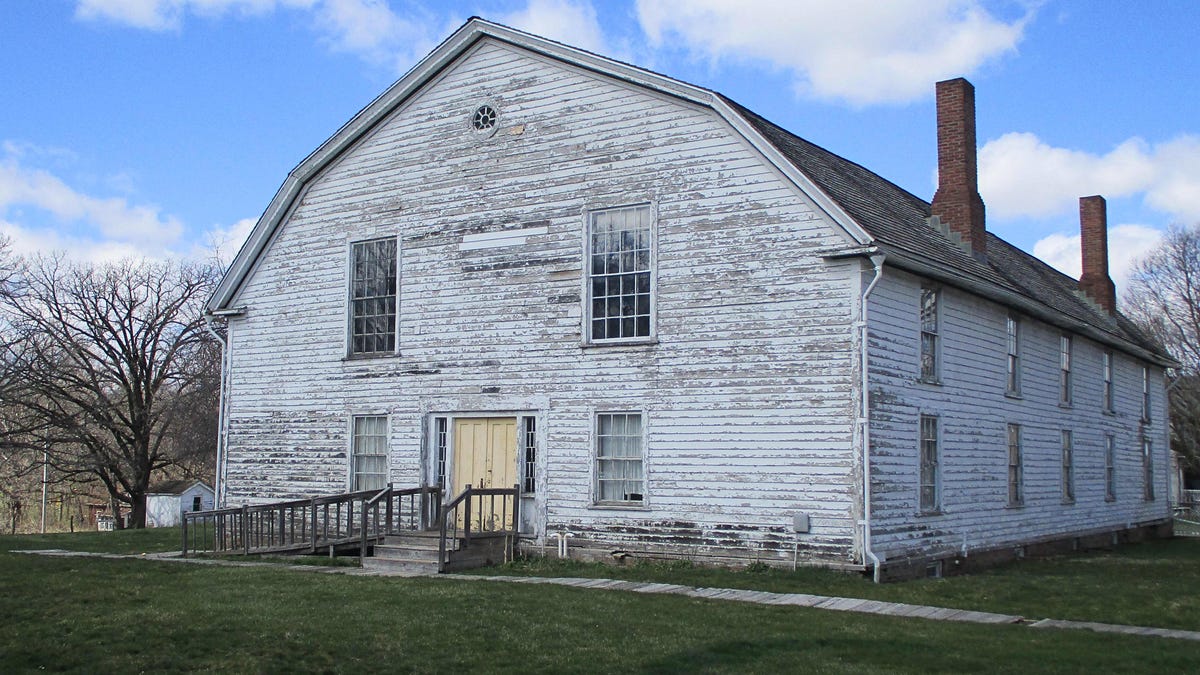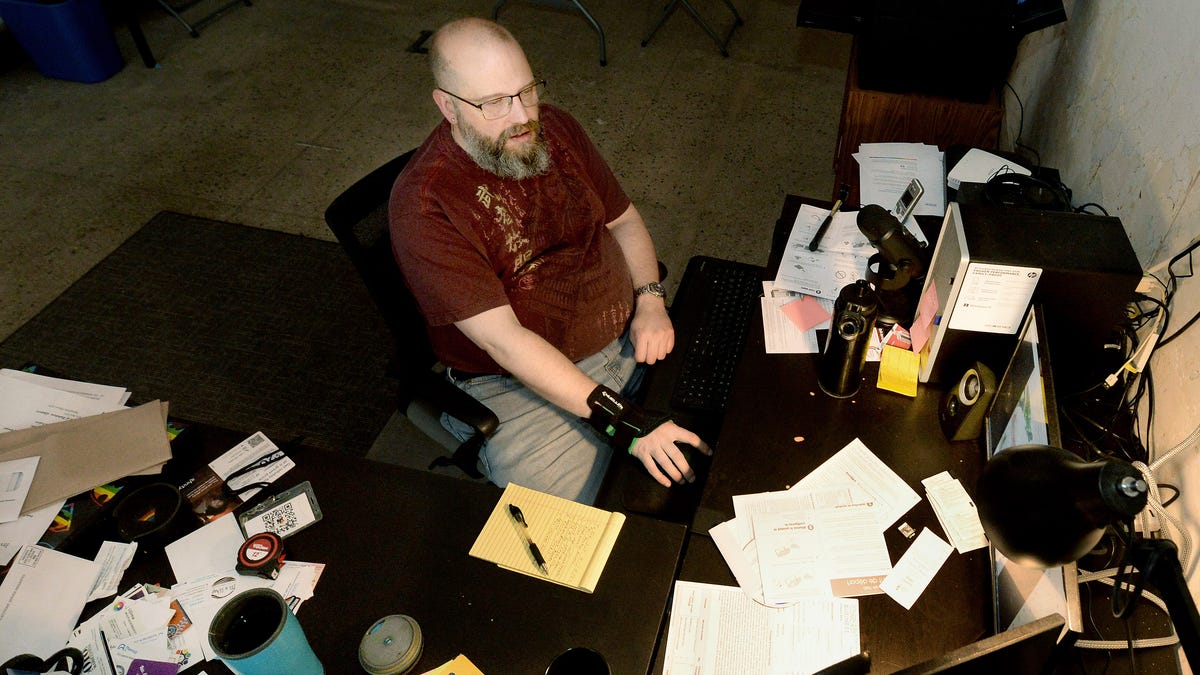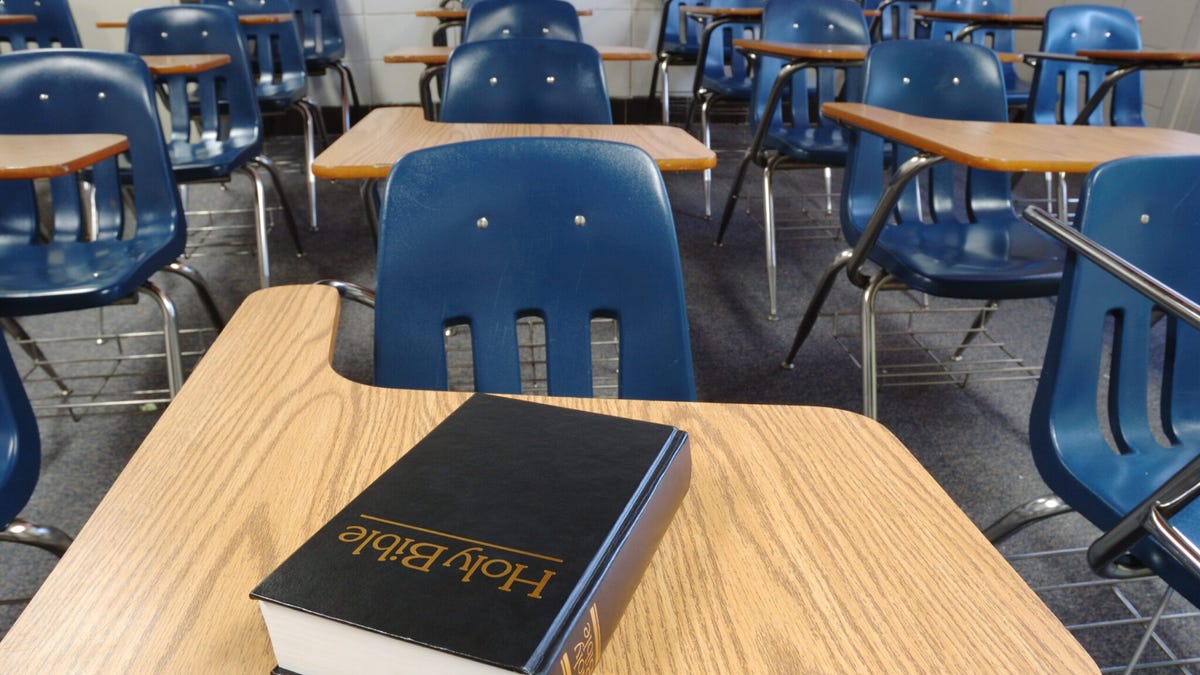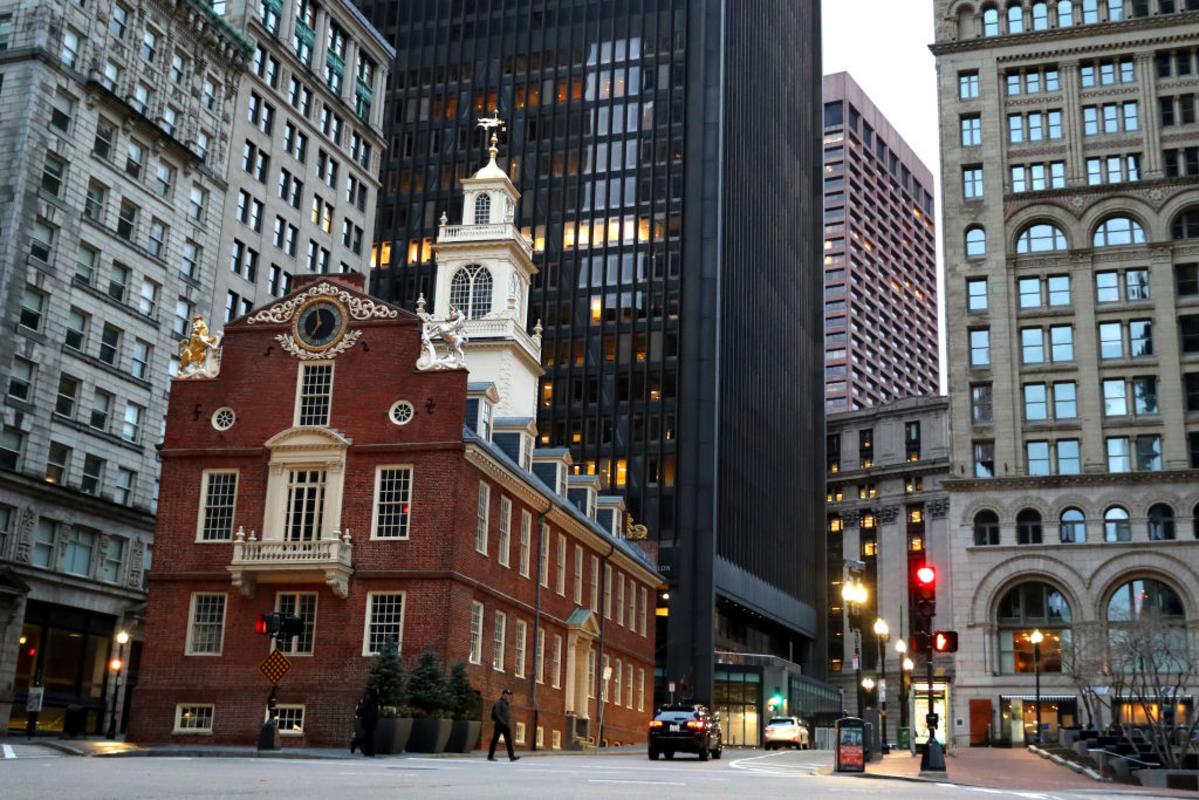Landmarks Illinois has placed the Bishop Hill Colony Church along with nine other sites across the state on its 2024 list of Most Endangered Historic Places in Illinois.
The sites, announced during a Tuesday news conference, include historic homes, banks, places of worship, factories, theaters, office buildings, schools, courthouses and cultural centers.
“This year’s ‘Most Endangered’ sites are not only incredibly important places in their communities, but many are large-scale buildings that sit prominently in highly visible areas near city centers, in historic districts or on state-owned land. Their neglect is seen and felt,” Bonnie McDonald, president and CEO of Landmarks Illinois, said in a news release.
“Despite their current condition, these places tell important stories from our past — stories that should not be erased due to insufficient investment or general disregard for our collective histories.”
This year’s Most Endangered Historic Places are in Chicago, Blue Island, Bishop Hill, Golconda, Old Shawneetown, Collinsville, Decatur, East St. Louis and Vienna.
Landmarks Illinois’ annual list is meant to call attention culturally and architecturally significant places in Illinois that are in desperate need of preservation resources.
Bishop Hill Colony Church
Bishop Hill, Henry County: The Village of Bishop Hill is one of the earliest settlements of Swedish immigrants in the United States, established as a utopian religious community by Eric Janson and his followers in 1846 during the first wave of mass Swedish immigration. Many of the village’s original buildings have survived, including Colony Church (1848), Ox Boys’ Dormitory (1850) and Bjorklund Hotel (late 1850s). The area of the original settlement is a National Historic Landmark and is also designated as a State Historic site, administered by the Illinois Department of Natural Resources.
According to Landmarks Illinois, previous Illinois leaders have not allocated sufficient funds to address upkeep at the site, which has resulted in the need for several repairs. Colony Church has the greatest need. The church is need of a new roof, siding replacement, paint stripping and new paint, foundation work, replacement of rotting wood, new gutters and plaster repair.
Illinois State Sen. Neil Anderson, R-Andalusia, and State Rep. Travis Weaver, R-Edwards, have urged state lawmakers and Gov. JB Pritzker to set aside funds for critical repairs, and, with Tuesday’s announcement, Landmarks Illinois also is urging the state to provide the Department of Natural Resources with the money and resources to make the repairs and properly manage sites like Bishop Hill.
Buel House State Historic Site
Golconda, Pope County: The Alexander Buel House, constructed in 1840, is a state historic site with ties to the Trail of Tears. Like other Illinois State Historic Sites included on our 2024 Endangered List, the house suffers from deferred maintenance due to a lack of state resources. The state recently painted the exterior of the house, but other repairs are desperately needed, including urgent interior work.
Shawneetown Bank State Historic Site
Old Shawneetown, Gallatin County: Shawneetown Bank State Historic Site is home to the former Bank of Illinois, the oldest bank building in the state. Landmarks Illinois previously listed the landmark structure on the 2009 Most Endangered list due to insufficient maintenance. Today, it has fallen into further disrepair. As is the case with other Illinois State Historic Sites included on the 2024 Most Endangered list, budgetary concerns place this property in danger of continued neglect.
Libby, McNeill and Libby Building
Blue Island, Cook County: The former canning and bottling factory was built in 1918 for the Libby, McNeill and Libby company, the second-largest producer of canned foods in the country at the time. For decades, the factory was an economic engine for the community, employing hundreds of local residents and migrant workers, until it closed in 1968. The building is currently vacant and is beginning to decay due to a lack of reuse and proper maintenance.
Portage Theater
Chicago, Cook County: The prominent theater, completed in 1920 near Portage Park’s popular “Six Corners” area, has been an important cultural institution for the local community. However, it has suffered from deferred maintenance since fully closing in 2018. While the current owner has demonstrated interest in revitalizing the designated Chicago Landmark, long-term plans remain unclear and securing financing has been a challenge.
Sears Administration Building
Chicago, Cook County: Constructed in two phases in 1905 and 1914, the Administration Building served as office headquarters for the former retail giant, Sears, Roebuck and Co., until the 1970s. It is part of the company’s sprawling campus in the city’s North Lawndale neighborhood, a complex that is a designated National Historic Landmark and is a Chicago landmark district. The building has been on the market since the spring of 2023. And, unlike other buildings on the Sears campus that have been rehabilitated and adaptively reused, this one sits vacant and underutilized despite its potential.
Former Collinsville Township High School
Collinsville, Madison County: The former Collinsville Township High School welcomed generations of students between 1908 and 1982 and has had various uses since, but today sits empty and deteriorating in a prominent part of the Southern Illinois city. The current owner has plans to develop the building into affordable housing and has identified funding and tax incentives to do so. Local officials, however, oppose the project, which means that the school may continue to sit vacant indefinitely.
Decatur Masonic Temple
Decatur, Macon County: The Decatur Masonic Temple has served as an important community center in Decatur’s historic district since it was built in 1929. Throughout the past nearly 100 years, it has hosted cultural events and famous speakers like Eleanor Roosevelt and John F. Kennedy Jr. The building has suffered deterioration and does not generate enough income today to pay for proper maintenance, leading to expensive damages.
Former Lincoln School
East St. Louis, St. Clair County: Built in 1886 as a school for Black students, the historically significant building has survived the 1917 East St. Louis Race Riots and the widespread demolition seen in the Southern Illinois city during the mid-20th century. Despite its local importance and proximity to the city’s historic district, without a new use and proper investment, the school faces demolition.
Johnson County Courthouse
Vienna, Johnson County: Built in 1871, the Johnson County Courthouse was the oldest continually operating courthouse in Illinois before it closed in 2023. While a new county complex is being constructed to house county offices, the nationally landmarked courthouse was supposed to be repurposed for local businesses and other governmental work. However, it has sat vacant since September 2023 when a roof truss fractured. Until funding for permanent stabilization is secured, the future of the building remains uncertain.
The annual Most Endangered Historic Places in Illinois list is Landmarks Illinois’ largest and longest-running advocacy program. Launched in 1995, the annual list aims to boost advocacy efforts and build support for each property’s eventual preservation.































